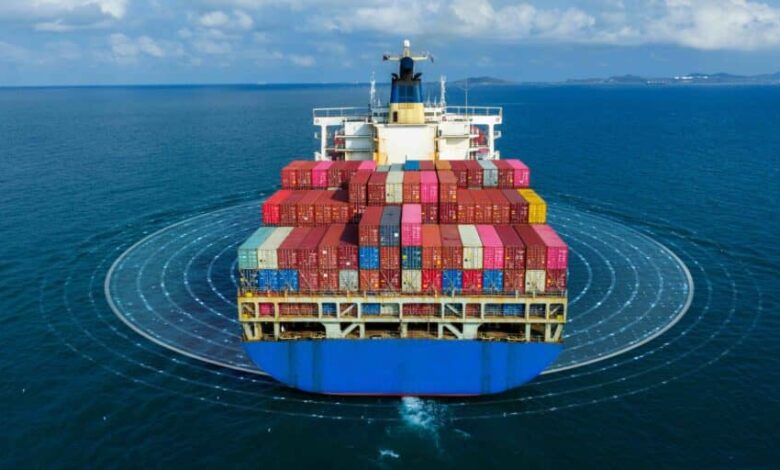Maritime Energy Training Facility to Deliver Competencies for Maritime Workforce to Handle New Fuels
Navigating Future Waters Maritime Energy Training Facility

Setting Up of METF for the Training of Global Maritime Workforce
During the SMW 2024 opening ceremony, MPA signed a Letter of Intent to establish METF with 22 partners, including international organizations, trade associations, unions, universities, and manufacturers of marine engines worldwide. The Tripartite Advisory Panel, established by SMF with support from MPA in early 2023, made recommendations that led to the creation of METF. These suggestions focused on future and emerging skills and competencies that should be developed for the maritime workforce.
In Singapore, METF will be founded as a decentralised network of training centres. A brand-new dual-fuel marine engine simulator will serve as its anchor, providing instruction on the safe handling, bunkering, and management of situations requiring the usage of alternate fuels like methanol and ammonia. The Singapore Maritime Academy’s (SMA) integrated engine room and bridge simulator is one of the additional training facilities that supports METF. For crew resource management training, there is the bridge and engine simulator at Wavelink Maritime Institute (WMI) 2 and Singapore Polytechnic (SP). The SMA operates gas and fire safety training facilities at Poly Marina, and AR-enabled scenario-based training created by SP’s Center of Excellence in Maritime Safety is provided to METF for emergency response training.
In order to upskill the global maritime workforce, including seafarers, on the operations, bunkering, and management of zero or nearly zero emission-powered vessels, METF will also make use of the resources and training technologies of its many partners. METF’s partners will be creating new curriculum and training courses, which will be gradually introduced starting this year.
As one of the organisations implementing the Baseline Training Framework for Seafarers in Decarbonization4—which is now under development—through METF, MPA also seeks to assist and contribute to the work of the Maritime Just Transition Task Force (MJTTF). This will complement the ongoing thorough review of the International Convention and Code on Standards of Training, Certification, and Watchkeeping for Seafarers (STCW) by the International Maritime Organization (IMO) and directly contribute to the joint work of the IMO and MJTTF to develop training provisions for seafarers in support of the decarbonisation of shipping. The IMO Working Group on the Comprehensive Review of the STCW Convention and Code, which was formed in 2023 under the Sub-Committee on Human Element, Training and Watchkeeping, is presently being chaired by Singapore.
New Methanol handling training for ships by SMA
SMA has introduced the first training programme in Asia on managing methanol as ship fuel as part of the METF curriculum. The MPA-accredited training programme addresses the operational and safety procedures for methanol fueling that were created in the wake of the first ship-to-containership methanol bunkering operation that took place in Singapore in July 2023. A practical component on battling methanol fires, which covers both shipboard and terminal fires, is also included in the course. Currently, SMA conducts two sessions of the Basic and Advanced courses each month; however, based on industry demand, there are plans to expand this number. Beginning in April 2024, the training will be available to all seafarers and marine staff.
METF is anticipated to stimulate industry investments in the development of additional training facilities and solutions in Singapore to capitalise on the growth potential of this sector, given the industry’s high need for such shared training facilities. Recently, MAN Energy Solutions, a prominent manufacturer of alternative-fuel engines worldwide, inaugurated a new multipurpose facility. Customers and staff can receive training on the safe operation, upkeep, and troubleshooting of all MAN Energy Solutions equipment at the facility’s brand-new MAN PrimeServ training academy. METF is anticipated to provide advantages to corporate training academies established by shipping corporations, like Eastern Pacific Shipping, for the purpose of teaching its shore-based and seafaring workers worldwide.
Upskill maritime workforce through MPA-SMF Joint Office for Talent and Skills
The MPA-SMF Joint Office for Talent and Skills (Joint Office) was founded in March 2024 to ensure that Singapore remains able to access a diverse pool of maritime talents and experts. It also serves as the focal point for the tripartite efforts by the government, industry, and unions to upskill the Maritime Singapore workforce in both shore-based and seafaring jobs.
The Joint Office will collaborate with IHLs and businesses to evaluate and gradually transform pertinent short-term courses or on-the-job training into recognised competency-based micro-credentials, giving employees more freedom to learn new skills. These will centre on advance proficiencies including digitalization, sustainability, and maritime cybersecurity. Micro-credentials have the potential to be used in conjunction with formal or industry-recognized certifications to bridge the gap in providing working adults with flexible and high-quality upskilling options while they are still employed full-time. Over time, more courses and workplace learning will be recognised as micro-credentials, thanks to the Joint Office’s initiatives to broaden the micro-credential pathway.
